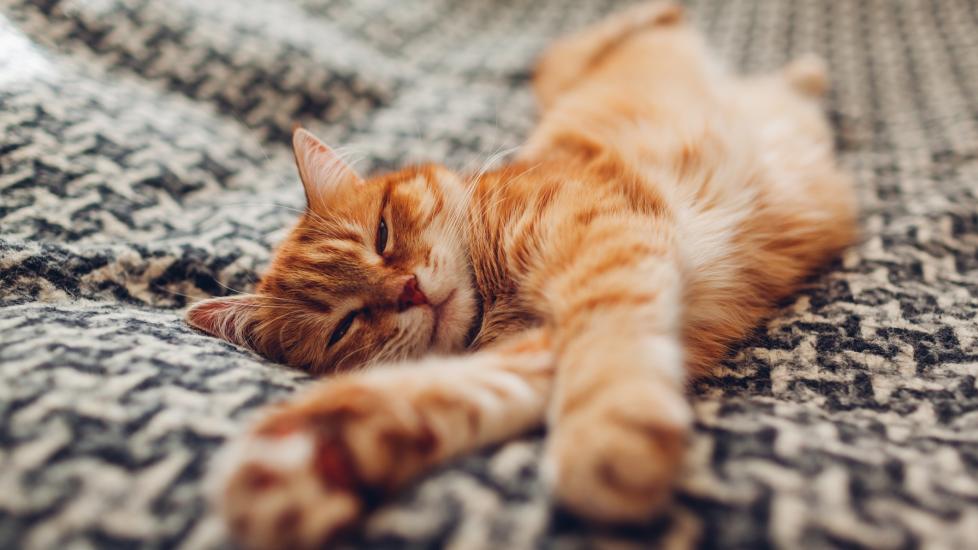 Cats are undoubtedly one of the most beloved pets worldwide, known for their graceful movements, independent natures, and mysterious behaviors. Among these enigmatic habits is the purring sound that cats make—a soft, rhythmic vibration that can be both soothing to pet owners and puzzling to those who seek its true meaning. In this article, we will delve into the various reasons why cats purr, exploring the diverse interpretations behind this intriguing feline vocalization.
Cats are undoubtedly one of the most beloved pets worldwide, known for their graceful movements, independent natures, and mysterious behaviors. Among these enigmatic habits is the purring sound that cats make—a soft, rhythmic vibration that can be both soothing to pet owners and puzzling to those who seek its true meaning. In this article, we will delve into the various reasons why cats purr, exploring the diverse interpretations behind this intriguing feline vocalization.
-
Contentment and Happiness: Perhaps the most commonly associated feeling with cat purrs is contentment. When your furry friend is curled up in a cozy spot or nestled close to you, chances are they’re expressing pure satisfaction through their purring. This gentle hum often signifies that everything is right in their world at that moment, making it a comforting sound for both human and cat alike.
-
Communication and Bonding: Just like humans use speech to connect with others, cats have their own way of communicating complex emotions. The low-frequency vibrations produced by purring may serve as a means of bonding with other animals or humans. It could be a way for them to say “I trust you” or “You’re part of my family.” By sharing this intimate noise, cats strengthen relationships within their social groups.
-
Self-Healing Mechanism: Recent studies suggest that there might be more than just emotional significance attached to a cat’s purr; it could also play a role in healing. The frequency range of a typical purr (around 25–140 Hz) aligns with therapeutic frequencies used for bone density improvement, wound healing, pain reduction, and muscle repair. Some believe that when a cat purrs during recovery from an injury or illness, they’re activating natural healing processes within themselves.
-
A Call for Attention: While not all researchers agree on this point, some argue that purring can sometimes mean “pay attention to me!” If your cat seems particularly insistent on being noticed or petted and starts upping the volume of their purr, it might be because they want something specific from you. Whether it’s food, affection, or simply wanting to play, the purr acts as an alert system to get what they desire.
-
Stress Relief: Life isn’t always easy for our little companions either. Sometimes, stressors such as changes in environment or routine can cause anxiety in even the calmest of cats. Interestingly enough, the same frequency range found in purrs has been shown to reduce stress levels in humans. Therefore, it stands to reason that perhaps a cat’s own purring might help alleviate tension within themselves too—a self-soothing behavior akin to deep breathing exercises.
In conclusion, understanding the different meanings behind a cat’s purr enhances our appreciation for these fascinating creatures and strengthens our bond with them. Each time we hear that delightful rumble coming from our feline friends, we now know there’s likely much more going on beneath the surface than meets the ear. So next time your kitty starts softly vibrating beside you, take comfort in knowing they’re conveying messages filled with love, happiness, and possibly even requests wrapped up inside every charming purr.
